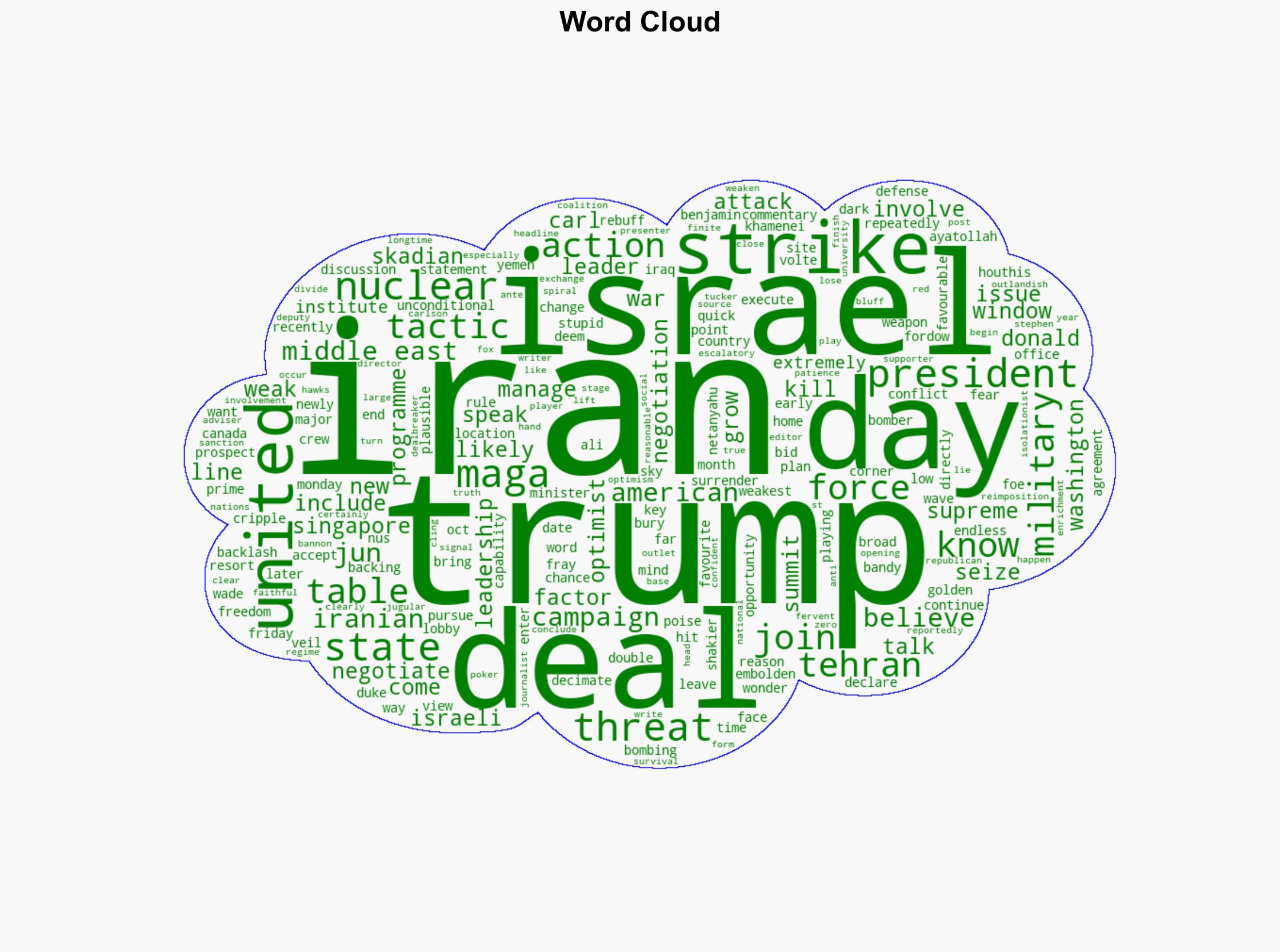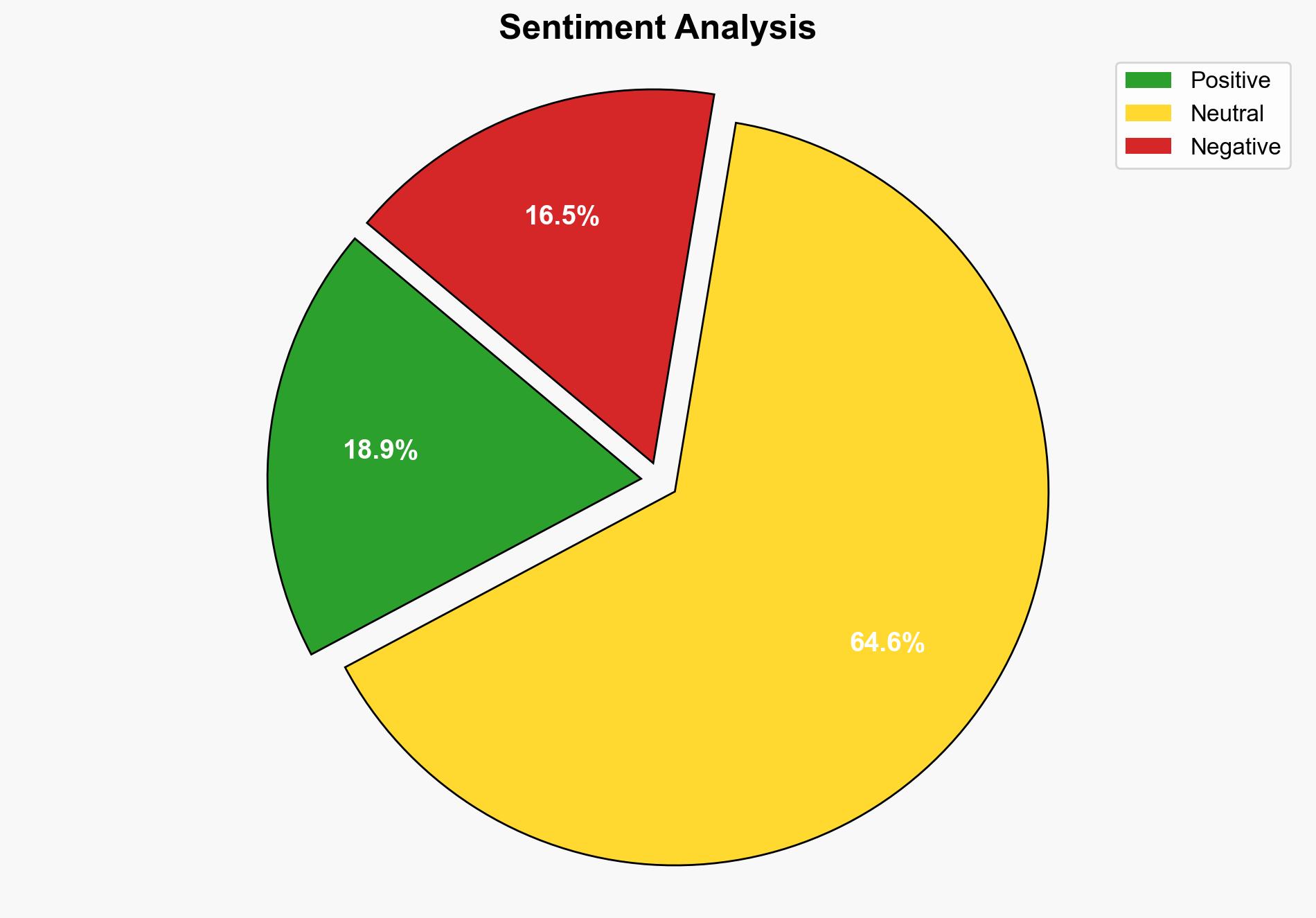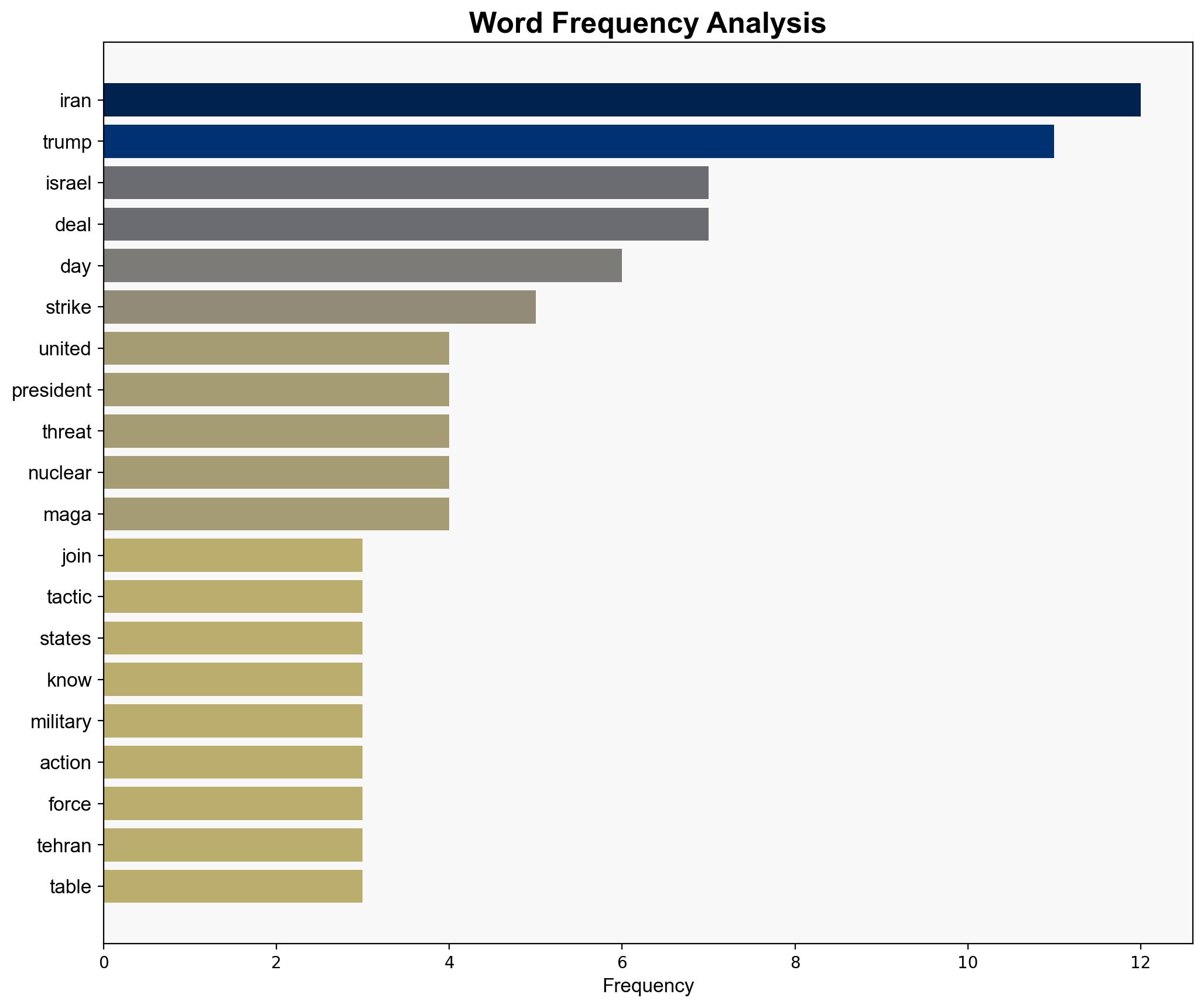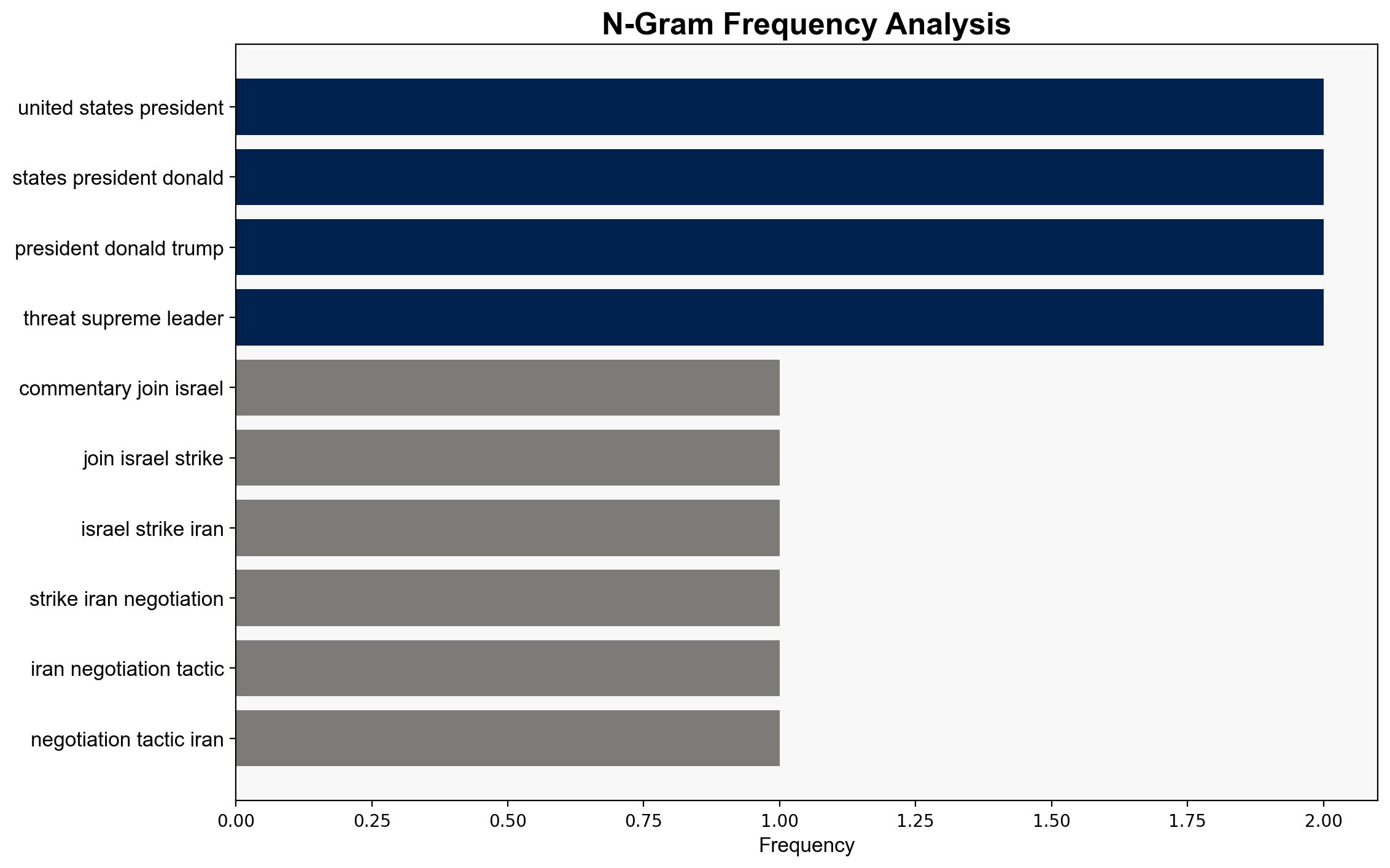Commentary Could US really join Israel to strike Iran or is it a negotiation tactic – CNA
Published on: 2025-06-18
Intelligence Report: Commentary Could US really join Israel to strike Iran or is it a negotiation tactic – CNA
1. BLUF (Bottom Line Up Front)
The current geopolitical climate suggests that the United States’ potential involvement in a military strike against Iran, alongside Israel, may primarily serve as a negotiation tactic. This strategy aims to pressure Iran into negotiations over its nuclear program. However, the possibility of actual military engagement cannot be entirely dismissed, given the fluctuating dynamics and heightened tensions in the region.
2. Detailed Analysis
The following structured analytic techniques have been applied to ensure methodological consistency:
Causal Layered Analysis (CLA)
At the surface level, recent rhetoric from the United States and Israel indicates a potential military collaboration. Systemically, this aligns with historical patterns of US-Israel cooperation against perceived threats in the Middle East. The worldview underpinning these actions is one of deterrence and power projection. Mythologically, the narrative of a strong stance against Iran persists as a means to maintain regional stability.
Cross-Impact Simulation
A US-Israel strike on Iran could destabilize the region, affecting neighboring countries economically and politically. It may also strain US relations with European allies and escalate tensions with Russia and China, who have vested interests in Iran.
Scenario Generation
– **Scenario 1**: The US and Israel proceed with a limited strike, leading to heightened regional conflict but eventually forcing Iran to negotiate.
– **Scenario 2**: The threat of military action results in successful diplomatic negotiations, averting conflict.
– **Scenario 3**: Escalation leads to broader regional warfare, involving multiple state and non-state actors.
3. Implications and Strategic Risks
The primary risk involves the potential for military conflict spiraling into a broader regional war. Cybersecurity threats may increase as Iran and its allies retaliate through cyber means. Economically, global oil markets could face disruptions. Politically, US domestic opinion may polarize further, affecting future policy decisions.
4. Recommendations and Outlook
- Enhance diplomatic channels to de-escalate tensions and promote dialogue with Iran.
- Prepare contingency plans for potential cyber threats and economic disruptions.
- Scenario-based projections:
- Best Case: Successful diplomatic resolution with Iran agreeing to nuclear program constraints.
- Worst Case: Full-scale regional conflict with significant global economic impact.
- Most Likely: Continued diplomatic pressure with intermittent military posturing.
5. Key Individuals and Entities
– Donald Trump
– Carl Skadian
– Ayatollah Ali Khamenei
– Benjamin Netanyahu
– Tucker Carlson
– Stephen Bannon
6. Thematic Tags
national security threats, cybersecurity, counter-terrorism, regional focus





